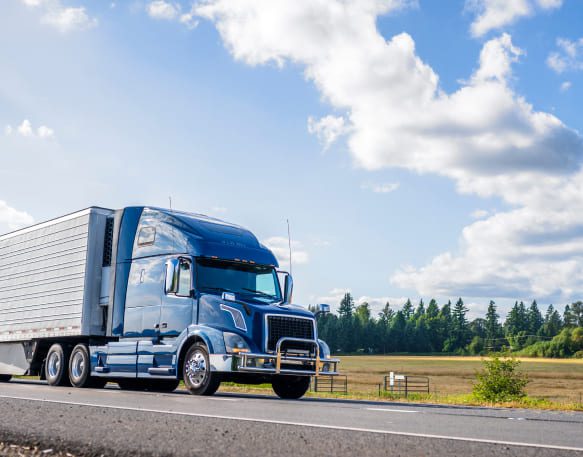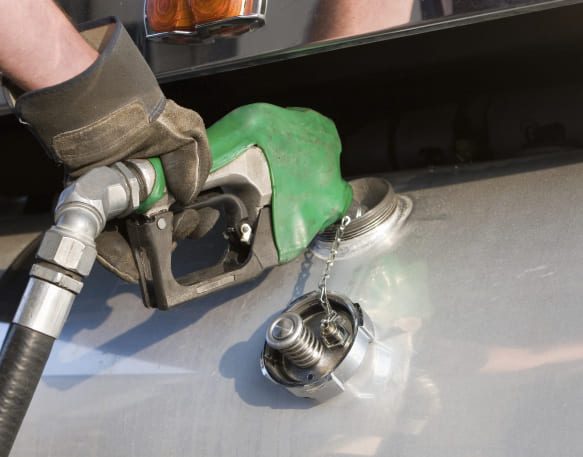With industries such as food and beverage, pharmaceuticals, and healthcare relying heavily on temperature-controlled shipping to get freight safely to their destination, less-than-truckload (LTL) carriers have become an integral part of the trucking industry. As companies strive to meet growing customer expectations for fresh and high-quality products, the demand for temperature-controlled LTL deliveries only continues to rise, which is great news for carriers.
But what are LTL loads, and how do temperature-controlled trailers work? If you’re relatively new to the industry or simply just want to learn more, we’ve got you covered. In this guide, we’ll explore the key factors that make temperature controlled LTL transportation unique and provide valuable insights on how businesses can optimize their operations to capitalize on this growing market demand.
What is LTL trucking?
Less-than-truckload or LTL refers to a shipment that only fills up part of a truck rather than a full truckload. As a carrier, you can pick up multiple smaller loads along a route to maximize efficiency and make the most of your truck’s capacity. By optimizing your routes and planning your loads accordingly, you can achieve a new level of cost-efficiency and even pass those savings on to your clients.
Though shipping cargo as a full truckload is more efficient from a shipper’s perspective, they may turn to LTL carriers on certain occasions. For example, if a shipper needs to move a partial load quickly, they may use LTL transportation. Similarly, a smaller shipper might not have enough freight to fill an entire trailer, forcing them to use LTL carriers. That means there are often plenty of LTL opportunities to choose from as a carrier.
What is temperature controlled LTL trucking?
Sometimes referred to as a reefer, temperature controlled trailers have a specialized interior that allows the driver to maintain very specific temperatures. This is incredibly important for perishable freight such as food or medicines that require a controlled environment in order to preserve their quality, safety, and integrity during transit.
These specialized trailers have insulation on all four sides to minimize heat transfer from the outside and use a control panel to regulate the temperature. A compressor circulates refrigerant, extracting heat from the interior. The cooled air is circulated by fans or blowers inside the trailer.
Temperature controlled LTL trucking is much the same as any other LTL freight, except the goods must maintain a constant temperature to preserve their quality, so they can only travel in a reefer.
Industries that use temperature controlled LTL transportation
Several industries rely on temperature-controlled LTL transportation to ensure the safe and regulated transportation of perishable goods. Let’s take a look at some of the industries and what they commonly transport.
- Food and beverage
This is likely the first industry that comes to mind when anyone thinks of reefer trucks. The food and beverage industry relies heavily on temperature-controlled shipping to transport perishable food items such as fresh produce, dairy products, meat, seafood, and frozen goods. Maintaining specific temperature conditions is crucial to preserve the freshness and safety of these products. - Pharmaceuticals and healthcare
Temperature-controlled LTL transportation is vital for the pharmaceutical and healthcare industries, which often deal with temperature-sensitive medications, vaccines, and even medical devices. Should a vaccine or medication be left too long at the wrong temperature, it’s considered spoiled and no longer safe to use. - Floral and horticulture
If you’ve ever purchased a bouquet of flowers for someone, you know how fragile they can be. The floral industry depends on temperature controlled delivery to preserve the freshness and quality of flowers and other products such as household plants. These sensitive products require controlled temperatures and humidity levels to extend their shelf life and maintain visual appeal. - Chemicals
Certain chemicals, including hazardous materials, may require temperature-controlled transportation to prevent degradation or hazardous reactions. In addition to maintaining specific temperature conditions, carriers transporting hazardous items need to adhere to strict safety protocols and often need to have extra training and certification. - Cosmetics and personal care
There are numerous cosmetics and personal care items that need to be transported in a temperature-safe environment. Certain creams, lotions, and beauty products may require temperature-controlled shipping to maintain their quality and efficacy. - Fine arts and collectibles
Fine art pieces, antiques, and collectible items may require special transportation to protect them from temperature extremes that can cause damage or deterioration.
Challenges of temperature controlled LTL transportation
Transporting freight is difficult enough as is, but temperature controlled LTL transportation introduces another level of complexities and challenges.
For one, you’ll need to maintain a consistent temperature throughout the transportation process. However, due to external factors like weather conditions, delays in transit, and improper handling, that’s easier said than done. While you can’t control the weather or traffic, you can ensure your employees are trustworthy, well-trained, and in constant communication to prevent any deviation from the required temperature range and avoid spoiled cargo.
You’ll also need to adhere to strict industry standards and regulations. Depending on the industry and the type of products being transported, this may include adhering to regulations set by regulatory bodies such as the FDA or meeting Good Distribution Practices (GDP) guidelines. Ensuring compliance adds complexity to the transportation process and requires careful monitoring and documentation.
What shippers look for in an LTL carrier
If you plan on being a successful LTL carrier, you need to think about what shippers are looking for. Notably, shippers prefer carriers that have:
- Experience: Shippers want carriers that know what they’re doing and have experience handling temperature-controlled shipments. They want someone with a proven track record and a deep understanding of the unique requirements and challenges associated with transporting temperature-sensitive goods.
- Reliable equipment: You’ll also want to have well-maintained reefer trailers or containers to attract shippers. They’ll want carriers with equipment that can maintain the desired temperature range consistently throughout the transportation process, so make sure your equipment can deliver.
- Compliance with regulations: Since shippers can get LTL carriers to transport everything from pharmaceuticals to food, compliance is a top priority. You’ll need to ensure your business complies with all relevant regulations and industry standards for temperature-controlled transportation. Depending on the nature of your products, this may include adherence to regulations set by the FDA or by another governing body.
- A solid reputation and references: No one wants to work with an unknown carrier, much less an unreliable one. That’s why you need to develop a positive reputation in the industry and have positive reviews and testimonials from previous customers. Don’t be afraid to flaunt your reliability, professionalism, and level of customer service.
- Insurance coverage: Insurance is a must in the transportation industry — and shippers need carriers that are covered. Ensure you have the appropriate insurance coverage for temperature-controlled shipments to provide protection, mitigate potential risks, and offer shippers valuable peace of mind.
DAT tools to help you find the best temperature controlled LTL loads
Finding LTL freight at the time and prices you need can be tough — but it doesn’t have to be. The days of taping up posters, calling up every shipper in the area, and watching a monitor at a truck stop off the side of the highway are over. Instead, you can use DAT to find the best opportunities. DAT provides a variety of tools and services to help you find LTL loads and negotiate the rates you deserve, no matter where you are.
- The DAT load board: The DAT load board is a game changer for LTL carriers. Not only is it the largest and most trusted freight marketplace in the industry, but it also provides up-to-date market rate data. Plus, you can discover everything you need to know about potential business partners, from their contact information to their credit score.
- DAT RateView: Part of the robust DAT iQ suite, RateView Analytics gives carriers the insights they need into ever-changing lane rates. With the market’s most up-to-date information on hand, you can negotiate reasonable rates and do so with confidence. RateView also offers forecasts so you can better anticipate market trends and negotiate accordingly.
Whether you’re just getting started in the trucking industry or you’ve already made this your lifetime career, carriers of all sizes trust DAT’s suite of products and services to streamline their operations, make their day-to-day easier to manage, and maximize their profits.
Start hauling temperature controlled LTL freight with DAT today!
LTL transportation can be tricky, but the experts at DAT are here to help. From finding trusted brokers or high-paying loads on DAT’s load board and benchmarking your rates to staying on top of market trends, DAT can help your carrier business quickly find LTL loads, no matter where you’re going.
Discover how the DAT load board can help you find high-paying temperature controlled LTL freight today!
Find the best LTL loads using the DAT One Load Board!
The DAT One Load Board makes it easy to find temperature controlled LTL loads from reliable brokers and shippers, saving you valuable time and energy.
Sign up today to start finding freight, connecting with new business partners, viewing current rates, and so much more!




